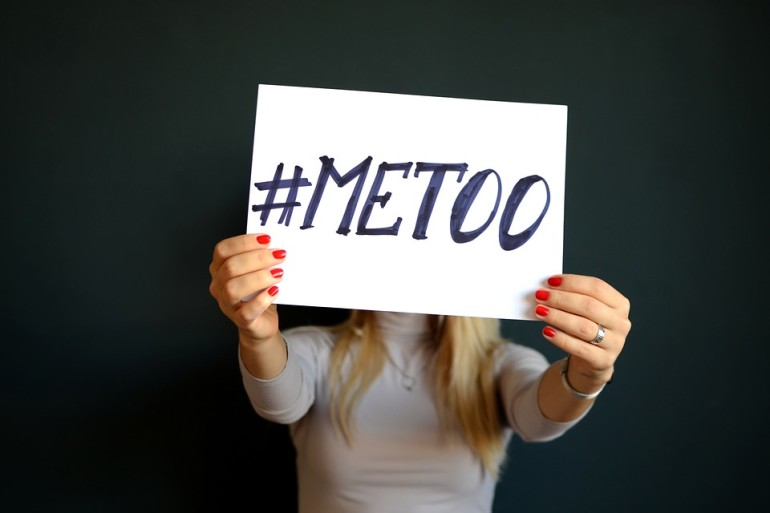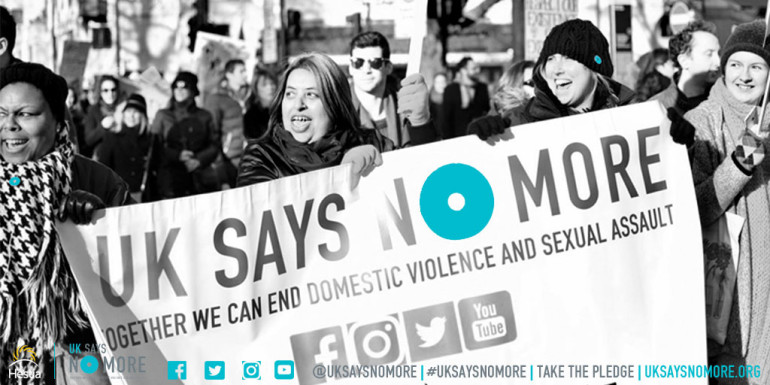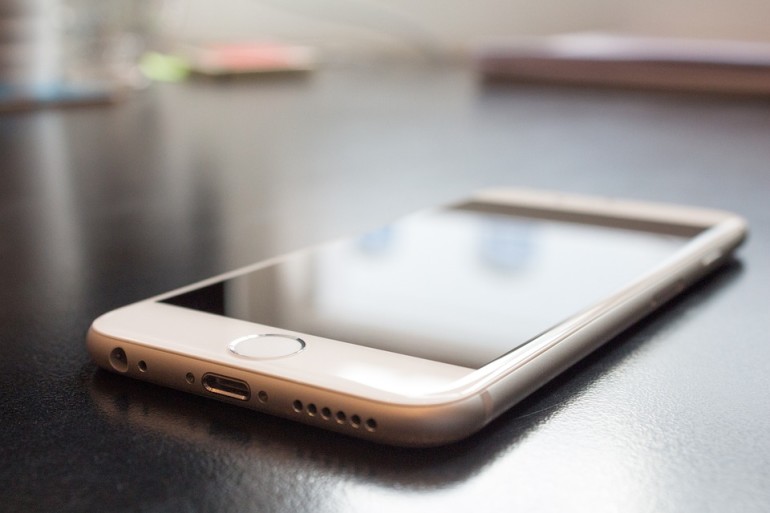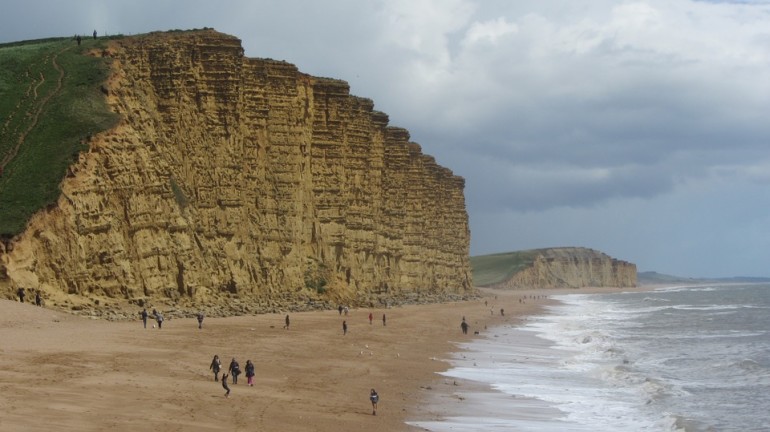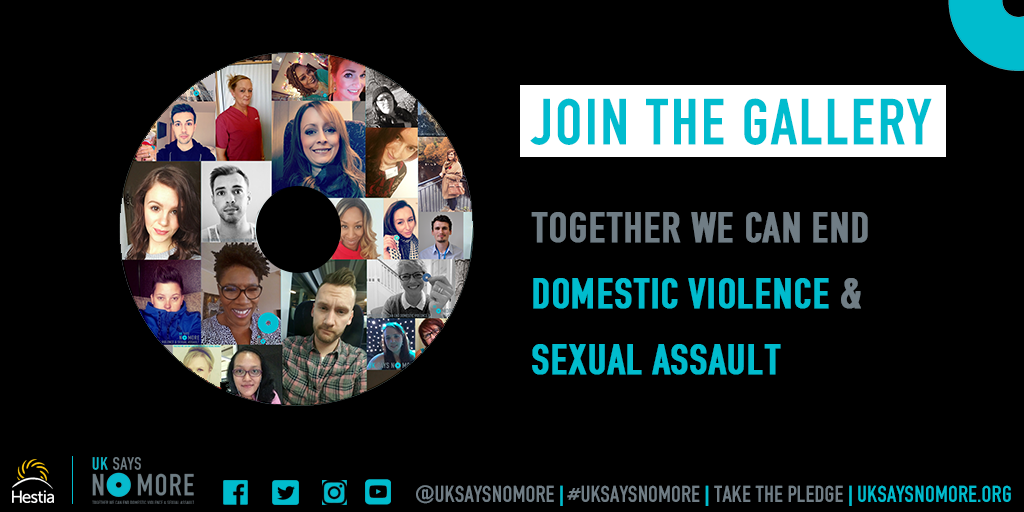2017 was the year that the conversation started.
As disheartening as it may be, it’s unfortunately not a massive shock that in 2017 we’re still having to tell people that sexual violence is not OK. That sexual assault is not OK. Sexual harassment is not OK. Stalking is not OK. Rape is not OK.
It can sometimes be an incredibly draining process having to repeat this time and time again, all while sitting back and observing as more accusations and an equal amount of denials flood the media and take hold of the headlines. Horror stories and allegations have spanned each and every industry, from the supposed glitz and glamour of Hollywood to the walls of Westminster.
It’s not exactly a thrilling task having to repeatedly delve into the dark details of our own personal experiences, just in case there’s a chance that someone may take the effect that they have had on us on board as they go about their daily conduct. We’d all appreciate a day off from having to constantly battle for sexual violence to be taken entirely seriously, from having to dispel harmful misconceptions and dismantling toxic masculinity. It can be a traumatic experience, ensuring our voices and our stories are heard, while sharing resources for those affected and information for those who don’t quite understand. It’s tiring.
Putting that ‘broken record’ feeling aside for a moment, it’s also crucial to take a step back, sit down, fix yourself a cup of something warm and appreciate the paramount importance of speaking up, speaking out and Taking a Stand. Though it may not always feel like it, and there’s still a bagful of work to be done, we’ve done well in the fight against sexual violence this year in particular.
Together, as a collective, we’ve shed some light on the darkest of doors, exposed just how commonplace and unforgiving sexual violence is and galvanised individuals, the media and the masses into taking action.
Let’s turn the table and look back at just some of the positive outcomes and lights that have appeared at the ends of tunnels throughout 2017 during the ongoing fight against sexual violence.
#MeToo
Social media can be a treacherous minefield at the best of times. If you can make it through the battles, where words are used as weapons and anonymity used to shield, you can start to see its potential benefits. In October, following on from the flurry of high profile women who found the courage to speak up against predator Harvey Weinstein, actress Alyssa Milano reignited the #MeToo movement on Twitter – a notion that was originally created by Tarana Burke ten years ago.
Simple yet effective, the hashtag was shared in order to highlight the sheer magnitude of sexual assault and harassment, and just how commonplace they are.
It provided victims with a voice, a chance to tell their stories and find hope and support in others who had been through similar experiences.
Igniting an international conversation, the #MeToo hashtag left no stone unturned in ensuring that inappropriate behaviour was marked out and underlined, and the message remains clear: we won’t accept it any longer.
Taylor Swift
2017 has been a remarkable success for Taylor Swift. Last month, the country star turned pop star released her sixth album Reputation to a record-breaking reception. Back in August, she won a symbolic $1 in a sexual assault trial that saw her counter-sue ex-radio DJ David Mueller for assault and battery, after he lost his job following accusations that he had groped the star during a meet and greet in 2013. Her intent was clear: the trial was not in the least bit about material gain, but rather about leaving a lasting message that sexual assault and harassment is never OK. Her handling of questions from Mueller’s attorney spoke volumes, with the star refusing to be backed into a corner:
“I am not going to allow your client to make me feel like it is anyway my fault because it isn’t…I’m being blamed for the unfortunate events of his life that are a product of his decisions. Not mine.”
The ‘Look What You Made Me Do’ hitmaker concluded her trial by acknowledging her privilege as a wealthy woman in being able to defend herself, and vowed to make donations to organisations that help ensure sexual assault survivors receive justice.
Women’s March
Back in January, following on immediately from the inauguration of Donald Trump, the United States held what would become the biggest single-day protest in US history. The movement was limitless, with major cities around the globe rallying together as a demonstration for women’s rights and other issues including immigration reform, racial inequality and LGBTQ+ rights. Originating in Washington, United States, the Women’s March was reported to have been planned in 84 other countries including England, Canada, France, Mexico and Antarctica.
#MillionWomenRise March in Trafalgar Square, London are saying #NOMORE to violence against women and girls! pic.twitter.com/L7rKjFOI4g
— UK SAYS NO MORE (@UKSAYSNOMORE) March 11, 2017
The protest focused on raising awareness of social injustices, particularly fighting those often faced by women, including harassment, abuse and reproductive rights. Feeling empowered, women everywhere took to the streets to say NO MORE to inequality.
Helplines
In the wake of the Harvey Weinstein allegations and the intense media coverage that they recieved, in addition to the #MeToo campaign igniting across social media, 2017 has seen an increase in the number of calls to anti-sexual assault helplines. One such organisation to see the impact of the #MeToo campaign and the global encouragement to speak up is Rainn in the US, who state that they have seen a massive 21% increase in calls. Over on this side of the pond, the NSPCC recently stated that in 2016/2017 they have seen a 31% rise nationally in referrals to police forces and social services following calls to their helpline regarding child sexual abuse.
The Rape Crisis helpline saw a similar dramatic rise, with a 30% increase in calls since the Harvey Weinstein allegations were brought to light. Following the whirlwind of sexual harassment and assault allegations and the media response to them, it’s likely that this increase in calls across the sector is due to people feeling more comfortable to open up and speak out regarding their own experiences, and in turn seek help with recovery and reporting them.
TIME
As each year comes to an end and major publications begin to round up the past twelve months, there is little such anticipation as there is for TIME magazine to unveil their ‘Person of the Year’. With a range of influential, topical individuals coming close to snatching the accolade this year, including US President Donald Trump, TIME made an immense statement by handing the title to the Silence Breakers, aka those who have spoken out against sexual assault and harassment. The Silence Breakers signified a massive cultural shift and awakened an international domino affect, with more people coming forward with their personal experiences, and in turn, other survivors being given a voice to share theirs. In 2017, the world saw the future begin to take shape – a future without sexual assault, harassment and violence. And TIME‘s decision to honour those involved told us all that this is a movement that shows no sign of slowing down.
Thank you @TIME for celebrating & showing solidarity with those who have spoken out against sexual assault and harassment. #MeToohttps://t.co/BHHI73tdKz
— UK SAYS NO MORE (@UKSAYSNOMORE) December 6, 2017
Kesha
‘Tik Tok’ hitmaker Kesha has been embroiled in a legal battle with her producer Dr Luke since 2014, following allegations that he was sexually, physically, verbally and emotionally abusive during the previous ten years of the pair working together. Dr Luke filed a countersuit against both Kesha and her mother, alleging defamation, stating that the pair had fabricated the allegations in order for Kesha to be released from her contract. Throughout this period, the musician had been unable to release new music, with her lawyer Mark Geragos warning that her career could ‘plummet past the point of no return’.
It seemed much like an uphill struggle, with repeated setbacks throughout the trial making her musical comeback seem ever-distant. Despite the case still ongoing, 2017 saw Kesha able to record an album through Dr Luke’s record label Kemosabe, though without direct with the producer as had been formerly thought. Since the release of her third studio album Rainbow, the singer has fulfilled her wish to tour once again and has even been nominated for ‘Best Pop Vocal Album’ at the 60th GRAMMY awards for Rainbow.
Broadchurch
Working alongside Rape Crisis, hit ITV1 show Broadchurch returned to our screens for the final time earlier in the year with a hard-hitting storyline about rape. Often is the case that TV plots centralising on rape find themselves surrendering to common misconceptions and dramatisations, with the number of rapes portrayed on TV as being carried out by a hyperviolent stranger outweighing those carried out by someone known to the victim – which we know to simply not be the case.
#Broadchurch offered a powerful portrayal to the aftermath of rape and leaves the audience to start the conversation about porn & consent. pic.twitter.com/HR4mEsIatD
— UK SAYS NO MORE (@UKSAYSNOMORE) April 17, 2017
That’s why the rape of Trish Winterman (Julie Hesmondhalgh) in this years’ season of Broadchurch is such a pivitol moment in terms of rape depictions across the media. The storyline worked to highlight the fact that sexual assault does not set itself aside to happen only to people with a certain look, and that it can happen to people of all races, genders, ages, heights, weights and orientations. It can happen to people with dark hair, blue eyes, no hair. It can happen to shop assistants, teachers, chefs and accountants. It can happen to mothers, brothers, aunts, friends.
It can happen to people just like me and you.
This year, Broadchurch worked to bring the topic of sexual assault out from under the carpet and behind closed doors and into the mainstream – right where it needs to be. The conversation has started, and in 2018 we need to carry it on.
Media Reaction
The revelations of sexual misconduct in a range of industries around the world were ensued by unprecedented media coverage, that of which only happens a handful of times per year. After enduring years of traumatic silence, 2017 was a milestone of progress in eradicating sexual violence, with a conversation that was once seen as entirely taboo now making its way to front pages across the globe. Inappropriate behaviour was condemned, solidarity was offered and a promise to uphold a zero-tolerance policy on abuse, assault and harassment was made. We’re a long stretch off our aim as a society to end sexual violence, yet 2017 was a stepping stone into the future.
2017 has been the year for breaking the silence. Let’s make 2018 the year for action.
You can support UK SAYS NO MORE by:
- Adding your photo to the Gallery, joining others nationwide saying “NO MORE” to domestic violence and sexual assault.
- Sharing the campaign materials on social media and with friends, family and colleagues, to start a conversation around these issues.
- Pledging to learn more and take a stand by challenging derogatory language or the perpetuation of myths through learning and sharing of this knowledge.
